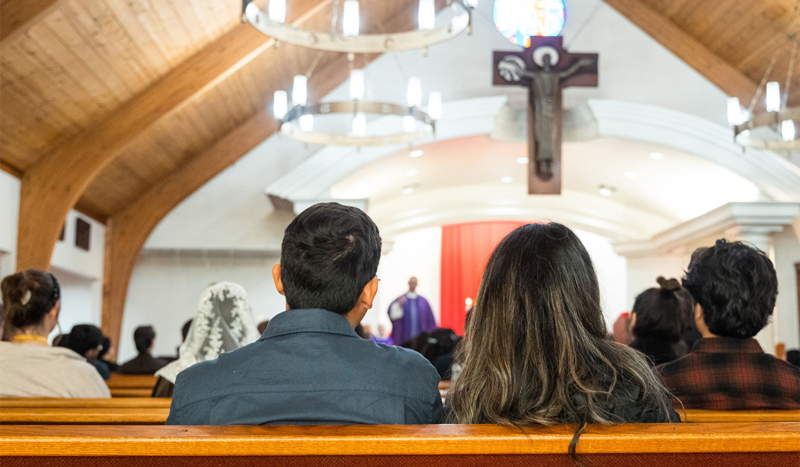
Shutterstock
CV NEWS FEED // Most Catholics in the US would like the Church to be “more inclusive, even if that means changing some of its teachings” on matters such as contraception, in vitro fertilization (IVF), marriage, and women’s ordination, according to a recent poll from the Pew Research Center.
Only 37% selected the poll’s alternative response – that the Church “should stick to its traditional teachings, even if that means the church gets smaller,” Pew reported April 30.
The poll, conducted from Feb. 3 to 9, found that 84% of Catholics in the US want the Church to permit the use of birth control and 83% say IVF should be allowed. Catholics who went to Mass at least once a week (only 30% of all Catholics) were less likely to agree, aligning themselves with Church teaching. Catholic Republicans were also more likely compared with Catholic Democrats to agree with Church teaching.
Overall, Catholics also generally diverged from Church teaching on sexuality and marriage. Almost eight in 10 said that cohabitating couples should be allowed to receive communion and six in 10 said priests should be allowed to bless same-sex couples. Five in 10 said that the Church should recognize “marriages” of same-sex couples. As with the questions on reproduction, regular Mass-goers and Republicans were more likely to uphold Church teaching.
When asked about ordination and women’s role in the Church, 68% said that women should be allowed to become deacons, 59% said they should be able to be priests, and 63% said that priests should be allowed to marry.
Just over half said that women currently do not have sufficient influence in the Church. Forty-two percent said they have the right amount of influence at the moment. More women than men (six in 10 vs just over four in 10) indicated they feel that women do not have enough influence in the Church.
Regular Mass-goers are 20 points less likely to support the marriage of priests, and 20 points less likely to approve of a women’s diaconate, Pew found. Weekly Mass-goers are also 22 percentage points more likely to say that the Church should not amend its traditional teachings to become more inclusive, even if that results in a smaller Church.

